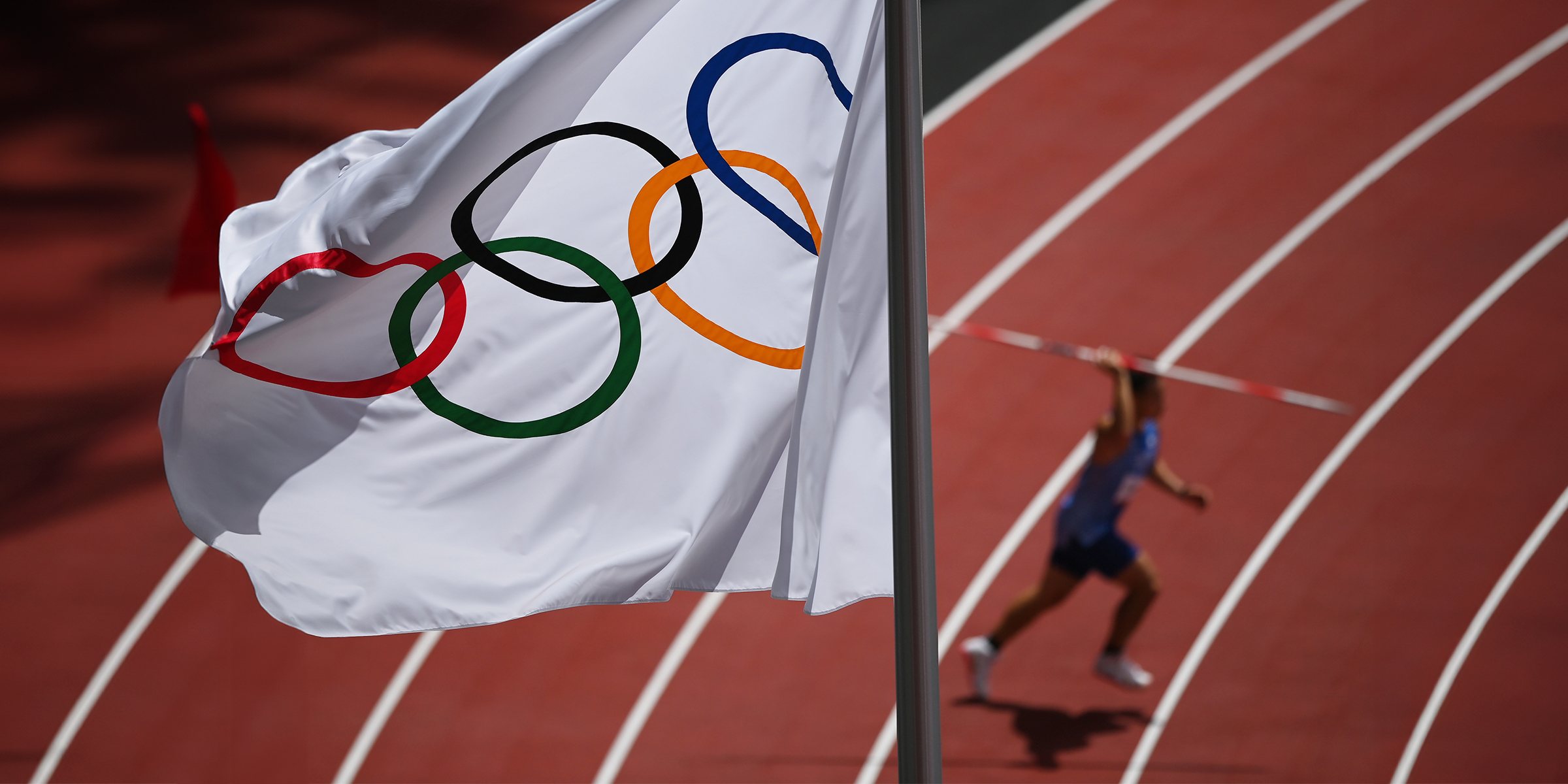
Olympic Games See Five Tragic Accidents, Including Death of Maggie Steffens' Sister-in-Law – Details
- The Olympic Games celebrate athletic excellence and global unity but have also been marked by tragedy.
- Over the years, several tragic accidents have cast a shadow over the Olympic celebrations.
- Here, we recount five tragic incidents from the history of the Olympics, highlighting the resilience and strength of those affected.
The Olympic Games are synonymous with athletic excellence, international camaraderie, and the pursuit of glory. Yet, beneath the surface of this global celebration lies a history marked by profound tragedies. Over the years, several athletes and their families have faced heart-wrenching losses during what should have been the pinnacle of their careers.
From the recent passing of Maggie Steffens' sister-in-law at the 2024 Paris Olympics to the historic death of cyclist Knud Enemark Jensen in 1960, these incidents reveal the human side of the Games.
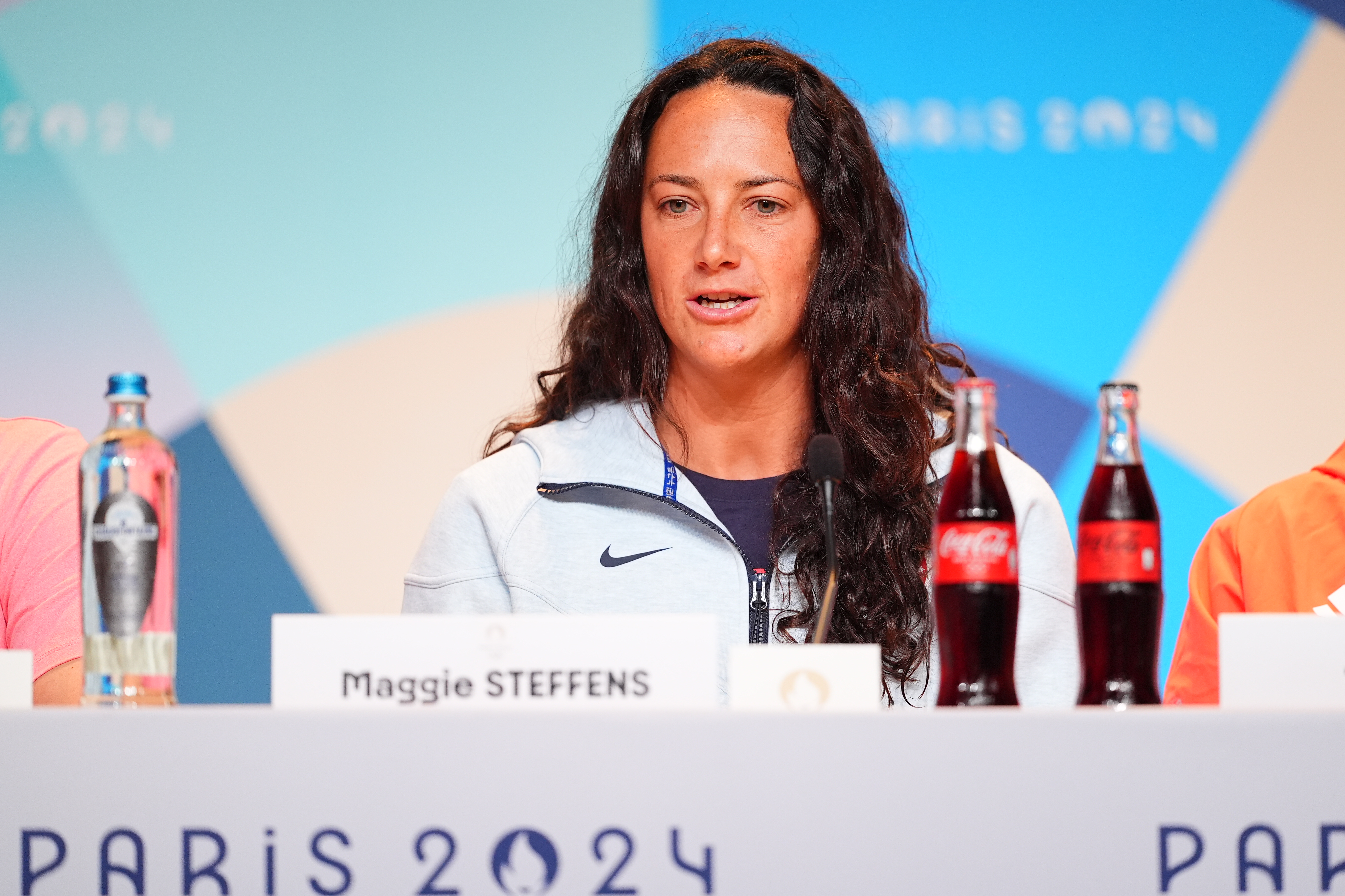
US water polo player Maggie Steffens on July 25, 2024, in Paris, France | Source: Getty Images
Maggie Steffens' Sister-in-Law: A Tragic Loss in Paris 2024
At the Paris Olympic Games 2024, the U.S. water polo captain Maggie Steffens faced an unimaginable personal tragedy. Just days before the start of the Games, Maggie's sister-in-law, Lulu Conner, passed away. The 26-year-old had traveled to Paris to support Maggie in her quest for a fourth consecutive gold medal with the U.S. team.
The family is still trying to understand the circumstances surrounding Lulu's death, which Maggie described as a "medical emergency." Deeply affected by the loss, Maggie told the Associated Press that Lulu was incredibly excited for the Olympic Games. She expressed their close bond, describing Lulu as the light of the world who made everyone happy and always brought people together.
Despite the overwhelming grief, Maggie continued to compete, scoring two goals in a match against Greece on July 27, where the U.S. triumphed by 15-6. Maggie, who holds the record as the highest-scoring woman in Olympic history with 58 goals, found solace in playing.
"It definitely helps to play," she said. "I'm like so out of body in a way right now. And I just keep trying to remind myself what Lulu would want and how she would be, you know, how can I embody her spirit the best. And Lulu was somebody that she gave 150% to everything she did."
Lulu, an artist and UC Davis graduate, had a distinctive way of showing her support by crafting her own version of Flavor Flav's USA Water Polo clock for the Olympics. Maggie, who wed Bobby Conner in Puerto Rico in November 2023, paid tribute to Lulu's memory by dropping a small bouquet of flowers into the Seine River during the opening ceremony.
Maggie acknowledged the immense support she received from her team during this difficult time. "It's going to be a really hard couple weeks for all of us [sic]," she admitted.
The 31-year-old athlete expressed that her team had been a significant source of support for her, as she and her husband, along with his entire family, were struggling immensely. She described the situation as a nightmare and completely shocking but found comfort in feeling Lulu's spirit with them. Maggie hoped they could make Lulu proud every day.
The incident reminded many of the 2016 Rio de Janeiro Games, where U.S. coach Adam Krikorian lost his brother, Blake, just before the competition began.
Adam, who had to balance personal grief with professional duties, empathized deeply with Maggie's situation. "You know when it happens, it's like all the emotions come pouring back to you," he said. "You might not feel these emotions that often, but then they just come rushing back."
Adam emphasized the importance of support and understanding during such times. "You just show her love and support," he expressed. "You know it's important that she's there for Bobby and his family as well. This is a difficult time for them, and give her some freedom to be able to spend some time with them I think is enormously important [sic]."
The Paris Olympic Games 2024 began under a cloud of sadness for Maggie and her family, yet she continues to honor Lulu's memory with every game she plays.
Samoa Boxing Coach: Lionel Elika Fatupaito's Sudden Death in Paris 2024
The Olympic Games were struck by another tragedy with the sudden death of Lionel Elika Fatupaito, the national boxing coach for Samoa. Lionel passed away from cardiac arrest at the Olympic Village on July 26, 2024, just before the opening ceremony of the Paris Games.
Despite immediate treatment by emergency services, Lionel could not be saved. The local prosecutor's office reported that he died of "natural causes."
The International Boxing Association (IBA) expressed their deep sorrow in a statement:
"We at the International Boxing Association extend our heartfelt condolences to the family, friends, and colleagues of Lionel Elika Fatupaito, the national boxing coach of Samoa, who tragically passed away during the Paris [Olympic Games] 2024. His legacy will continue to inspire future generations."
Lionel's death occurred on the eve of the Olympic boxing preliminary events, casting a shadow over the competition. Only one Samoan athlete, heavyweight boxer Ato Plodzicki-Faoagali, competed in the boxing events. Ato, a gold medalist at the 2023 Pacific Games, had a long-standing relationship with Lionel.
On social media, he reflected on their bond, "I first met coach Lionel when I was 15 [trialing] for Samoa's Youth team." Ato called Lionell a kind and generous coach, sharing not only his time and material possessions but also his wealth of knowledge.
You will be sorely missed coach ... Rest well old man, gonna miss you out there..." concluded Ato.
The Pacific Island nation of Samoa had 24 athletes competing in the Paris Summer Games, but the loss of their beloved coach was felt deeply across the team.
Joannie Rochette's Mother: A Heartbreaking Loss in Vancouver 2010
The 2010 Vancouver Winter Olympics were marred by a heartbreaking loss for Canadian figure skater Joannie Rochette. On February 21, 2010, just two days before Joannie was set to compete in the women's singles competition, her mother, Therese Rochette, passed away due to a massive heart attack. She was 55 years old.
Therese had arrived in Vancouver on February 20, with her husband, Normand, to support their daughter. The tragic news was delivered to Joannie by her father at the Olympic Village. Despite the overwhelming grief, Joannie decided to continue competing, honoring her mother's memory with her performance.
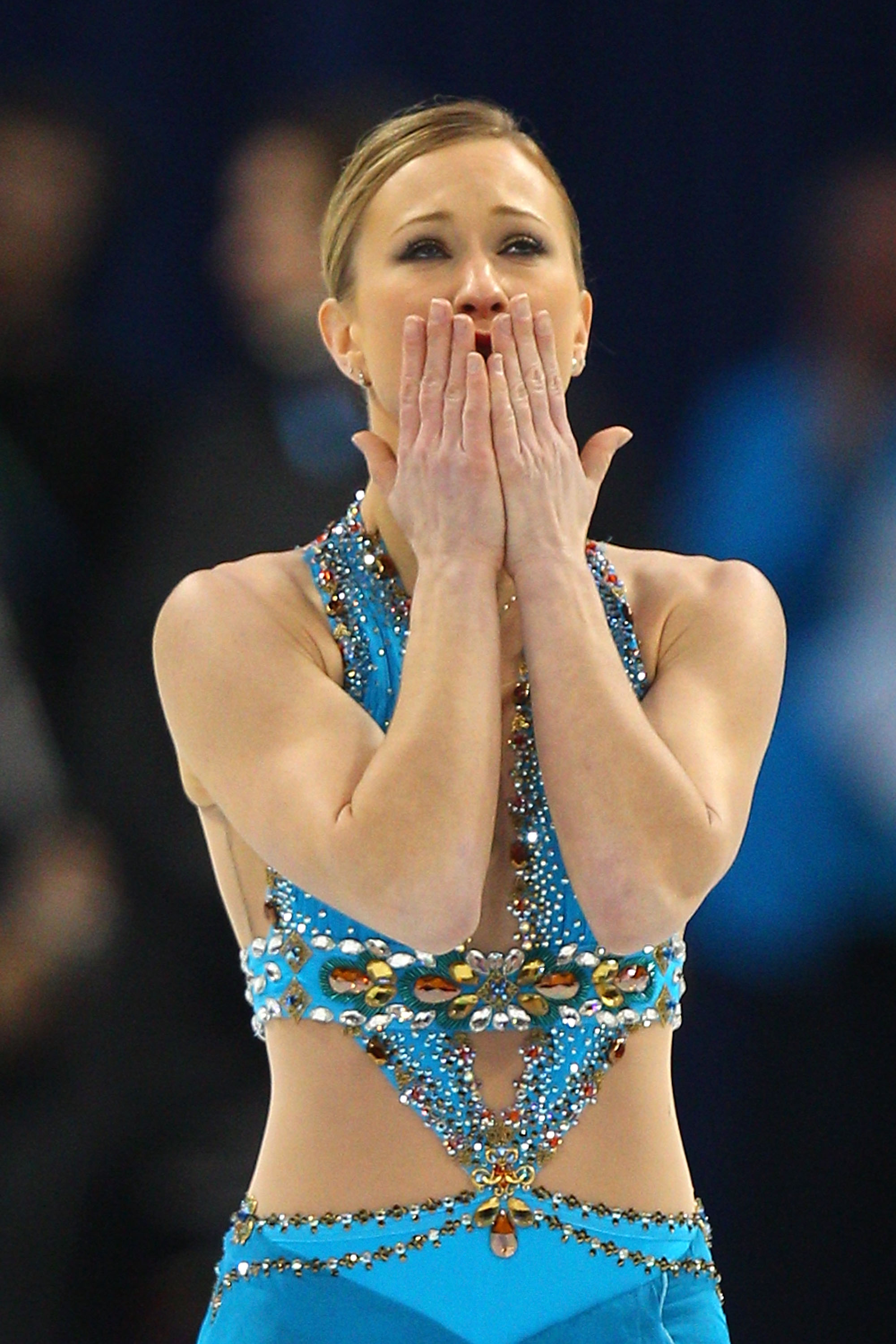
Joannie Rochette on February 25, 2010, in Vancouver, Canada | Source: Getty Images
David Baden, Joannie's agent, confirmed the cause of death and expressed the family's shock and sorrow. Joannie, a six-time Canadian national champion and defending world silver medalist, showed immense courage by taking to the ice for practice just hours after her mother's passing.
She was supported by her coach, Manon Perron, and received applause from the few people in the rink after completing a run-through of her short program, a tango.
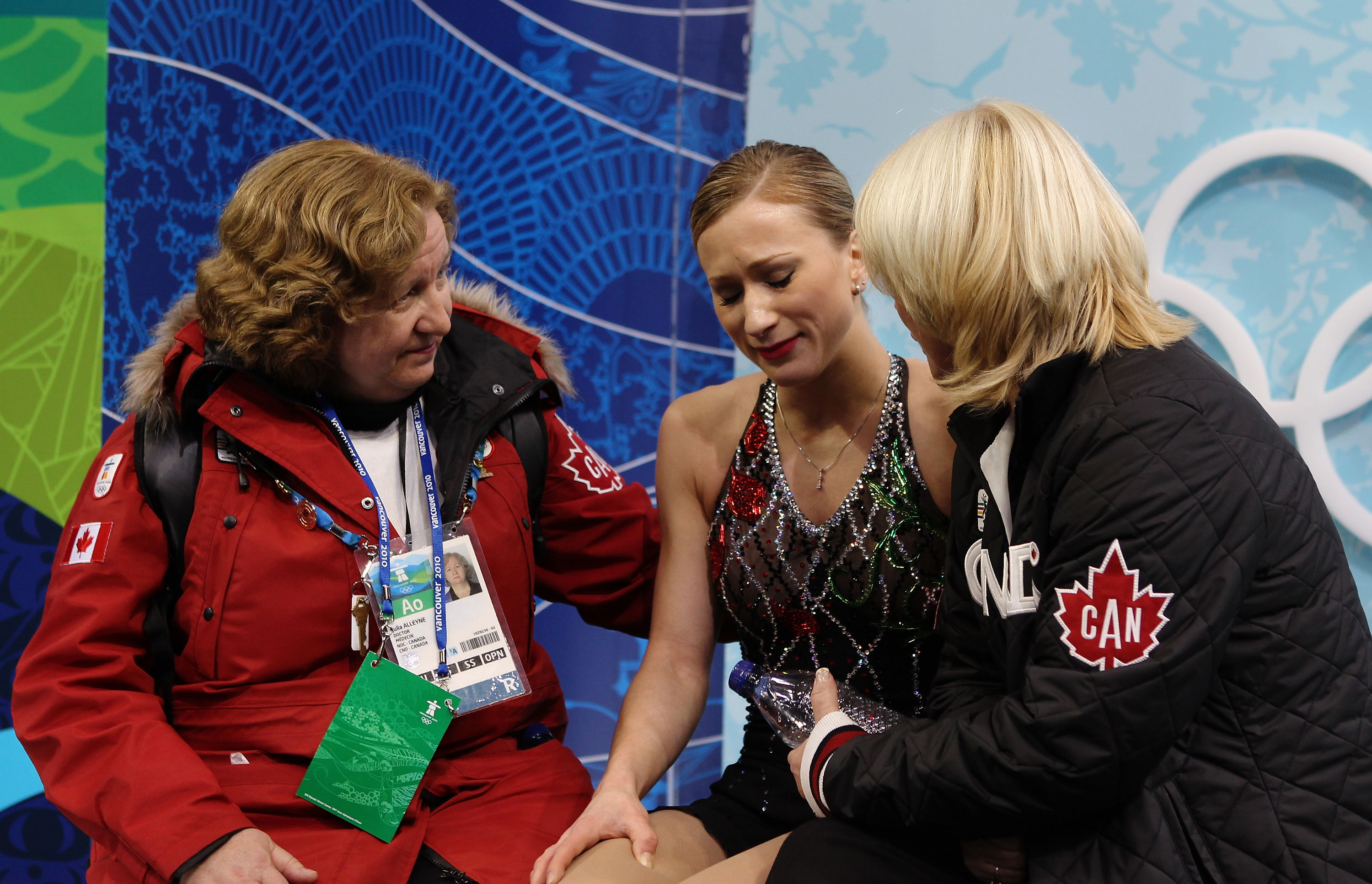
Joannie Rochette (C), accompanied by her coach Manon Perron (R) and doctor Julia Alleyne, on February 23, 2010, in Vancouver, Canada | Source: Getty Images
Pj Kwong, a prominent figure skating analyst and rink announcer for the Olympic Games, reflected on the unimaginable situation. She remarked that for any young person, especially a young woman at the Olympics during what was meant to be her moment, the situation was incomprehensible.
Pj, who had frequently talked with Joannie about her mother, mentioned that while her dad initially introduced her to ice skating, her mom was a constant presence throughout her journey.
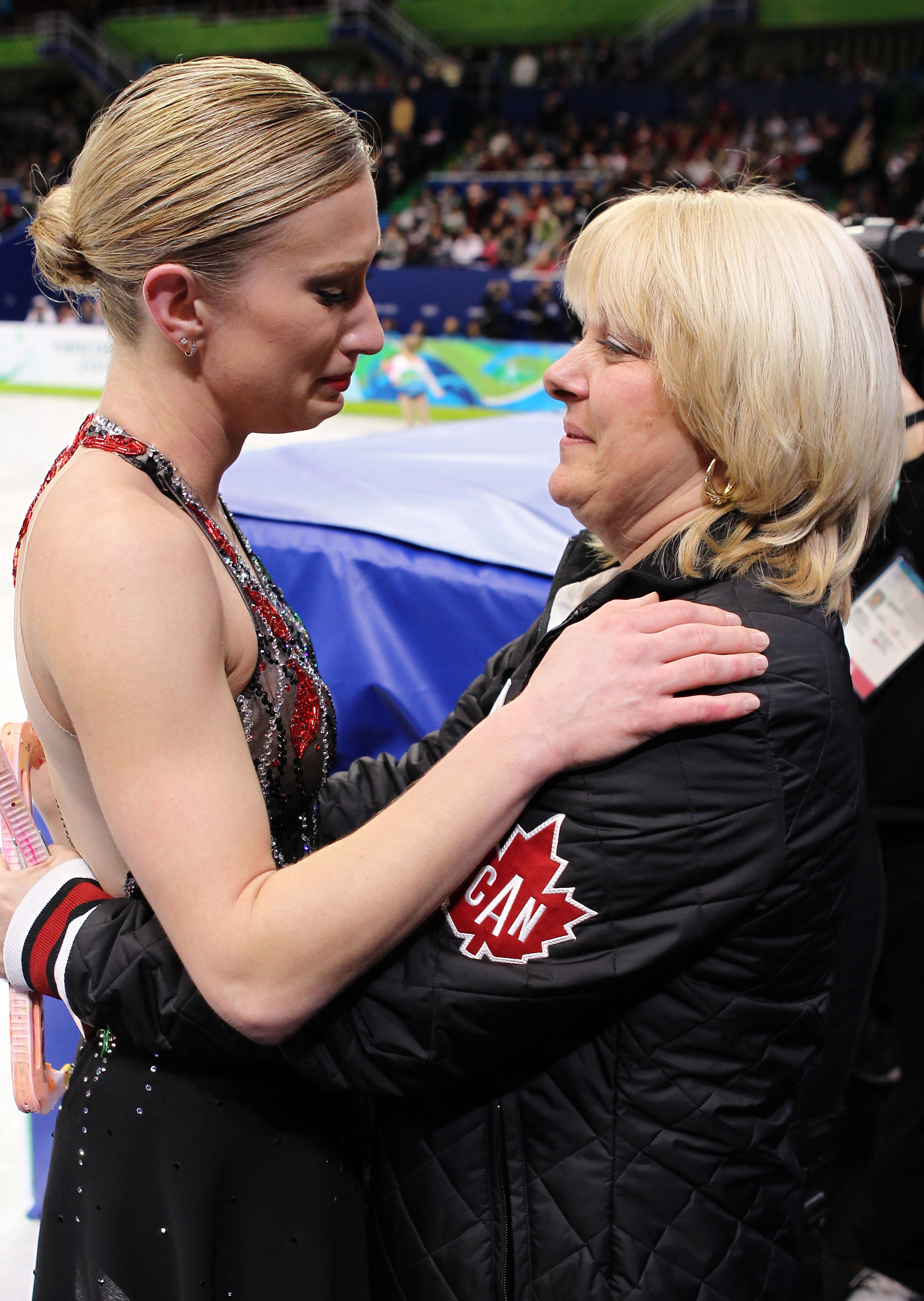
Joannie Rochette (L) embraces her coach Manon Perron on February 23, 2010, in Vancouver, Canada | Source: Getty Images
Joannie's choice to remain in the competition did not surprise those who knew her well. Pj explained that, based on her experience, high-performance athletes had the ability to set aside everything and concentrate solely on their physical performance, which was what set them apart from the rest.
She believed that Joannie wanted to honor her mother's sacrifices and the journey the Rochette family undertook to reach this point. Competing was the best way for her to pay tribute to her mother's memory.
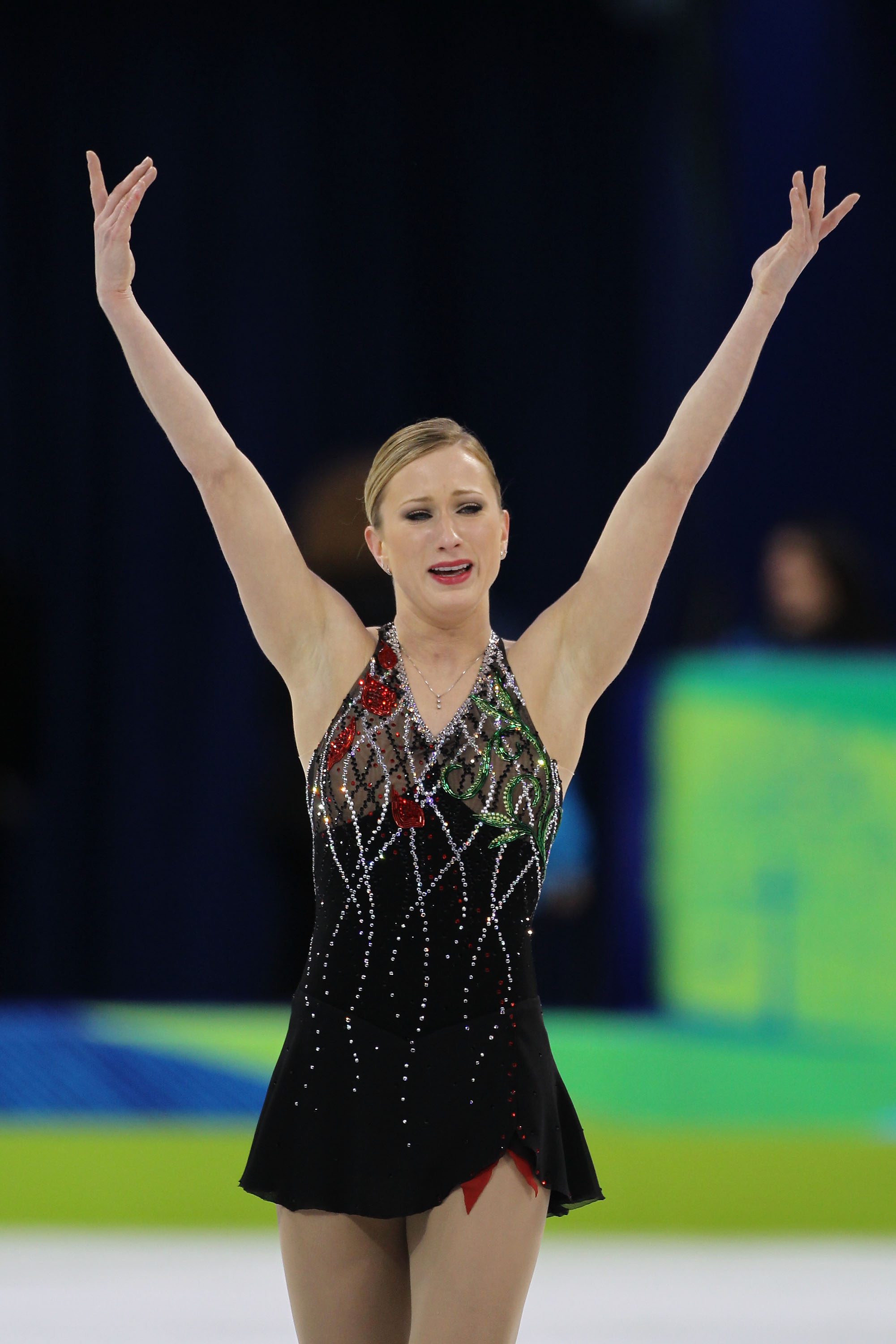
Joannie Rochette on February 23, 2010, in Vancouver, Canada | Source: Getty Images
Mike Slipchuk, Skate Canada's high performance director, acknowledged the team's support for Joannie during this difficult time. "We'll do our best to manage it, but our first thoughts are with Jo and her family," he said.
Team chef de mission Natalie Lambert added, "She may change her mind and that's fine, too. I think she owes it to herself to go on that ice, to have no regrets and fulfill that dream that she had. It's going to be really hard physically and really hard emotionally for sure."
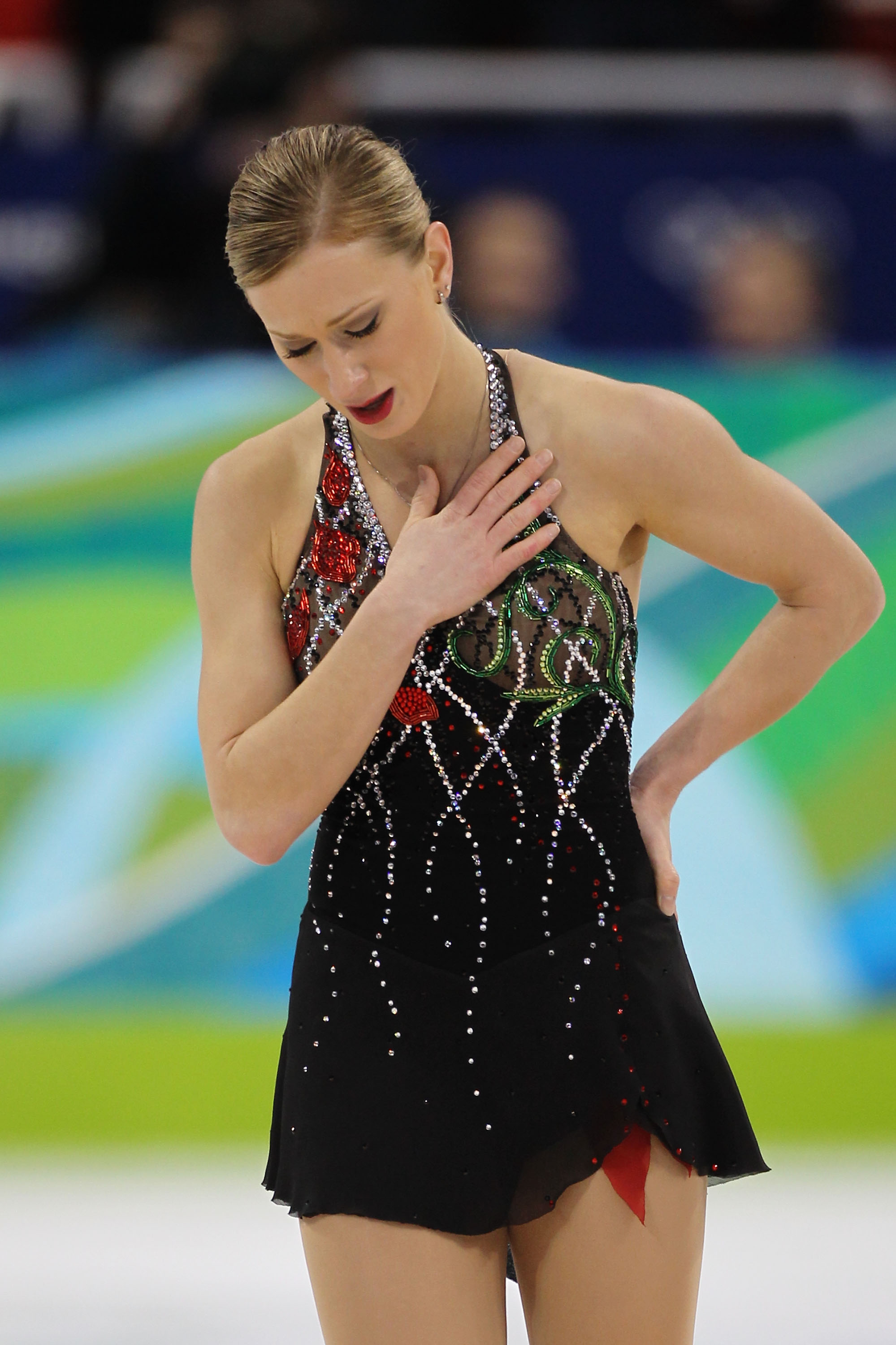
Joannie Rochette on February 23, 2010, in Vancouver, Canada | Source: Getty Images
Joannie's determination and resilience were evident as she competed in honor of her mother, embodying the strength and dedication that had brought her to the Olympics.
Ron Karnaugh's Father: A Tragic Collapse in Barcelona 1992
The 1992 Barcelona Olympics witnessed a tragic incident when Ron Karnaugh's father, Peter Karnaugh, passed away. On July 25, 1992, just after 26-year-old Ron marched into the Olympic Stadium during the opening ceremony, his father collapsed from a heart attack. The 60-year-old was taken to an emergency clinic at the stadium, where he died.
Ron, a swimmer for the U.S. team, was unaware of his father's death when he returned to the Olympic Village. He had seen his parents, Peter and Jean, among the 65,000 spectators during the parade of athletes.
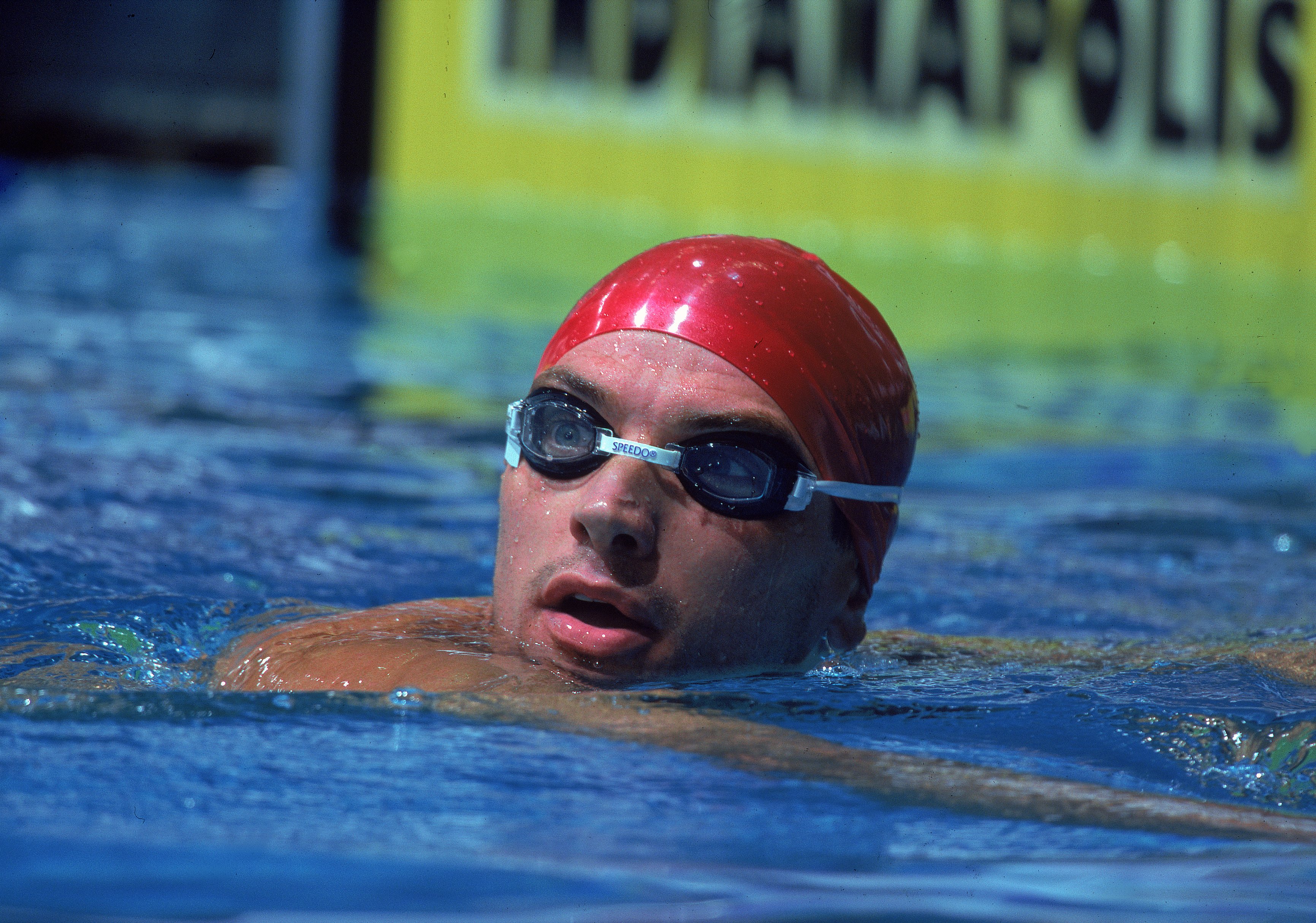
Ron Karnaugh in Indianapolis, Indiana, on August 13, 2000 | Source: Getty Images
His teammate, Joel Thomas, recalled the moment, "We actually saw them during the parade. His dad looked good, he was excited. There were so many people in that stadium, it's pretty neat to see your parents."
Ron's coach, Terry Stoddard, was contacted by U.S. Olympic Committee officials and asked to inform Ron. Terry went to the village early Sunday morning to wake him up and take him to his mother, without immediately telling him what had happened. "It wasn't an experience I would ever want to duplicate," Terry said.
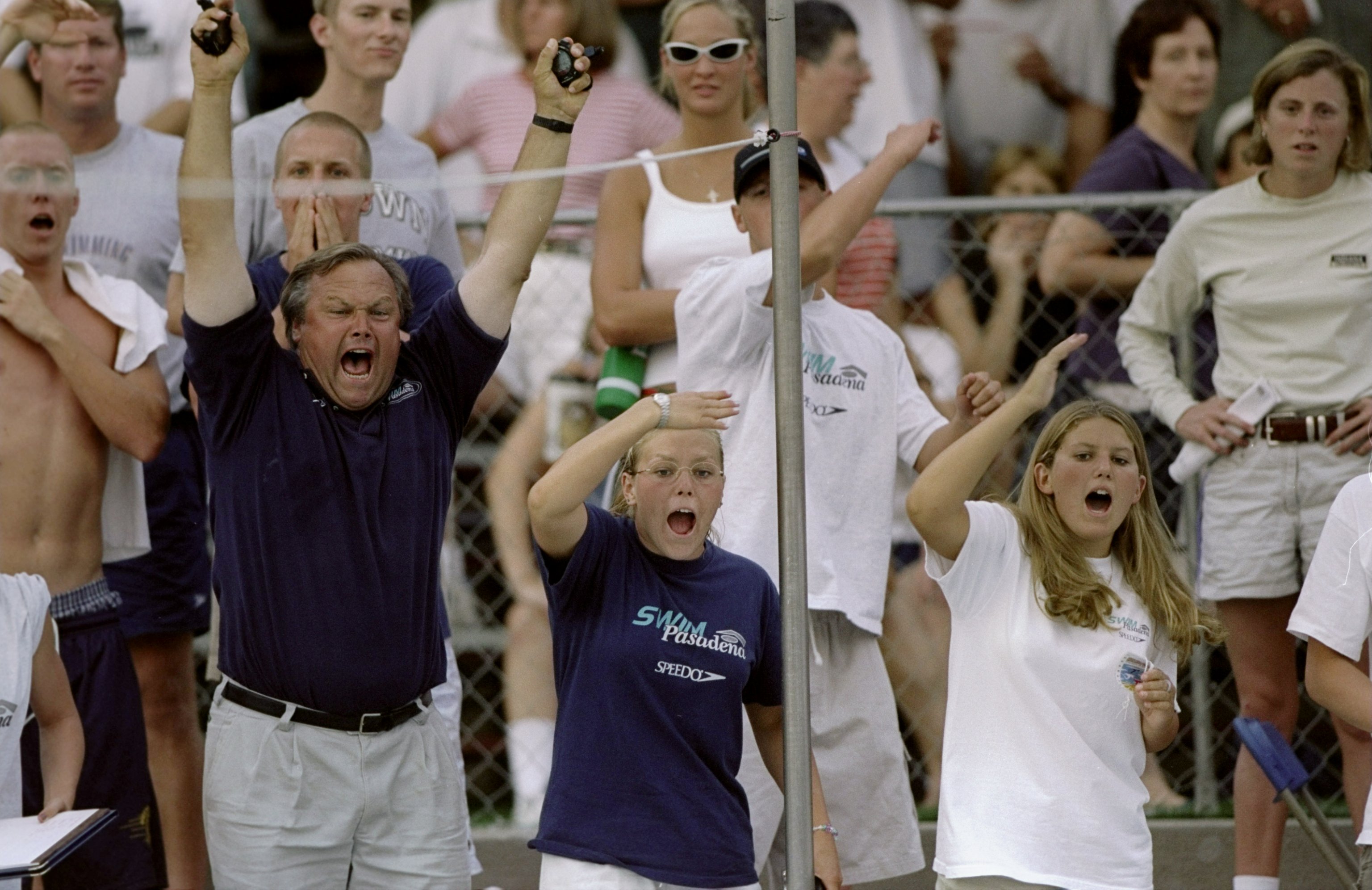
Pasadena swim coach Terry Stoddard in Clovis, California, on August 13, 1998 | Source: Getty Images
The Karnaugh family, including Ron's sister, Debbie, had raised about $27,000 from their hometown of Maplewood, N.J., to travel to Barcelona and support Ron.
Peter, a trucking company executive, was known for his unwavering support for his son and the entire Cal swim team. Joel shared memories of Peter's involvement, saying, "His dad was at all the meets, he was a real supporter of all the guys on the Cal team."
Despite the tragedy, Ron decided to compete in the 200-meter individual medley, scheduled for the Friday following his father's death. "He has confirmed that he will swim and swim well," Terry said at the time.
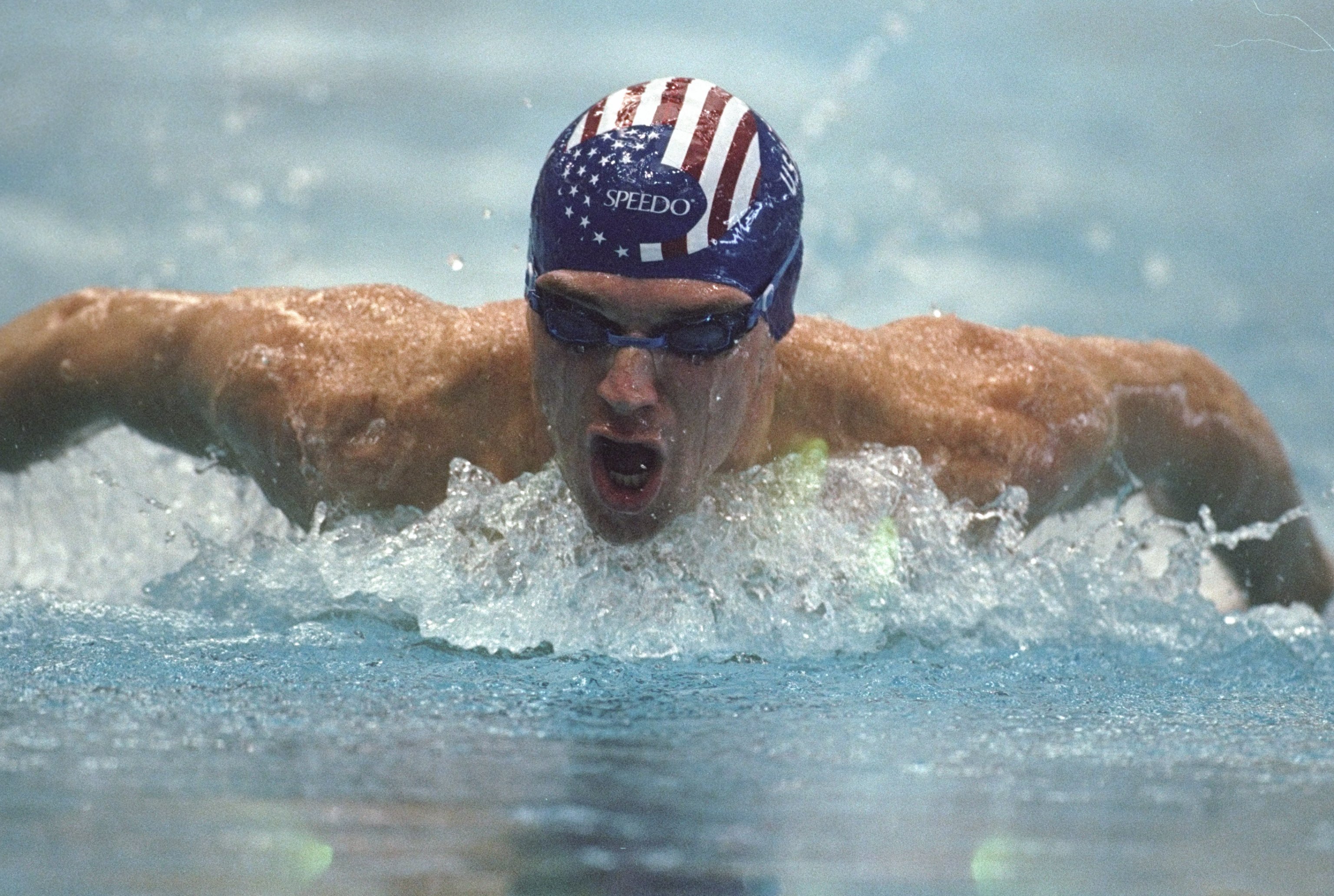
A closeup of Ron Karnaugh in action in Long Island, New York, on March 30, 1999 | Source: Getty Images
Members of the U.S. team were deeply affected by the news, with many learning about it after the first day's preliminaries. Shaun Jordan, an alternate for the 400 free relay, expressed his and the team's collective feelings, saying, "It's just a shock."
Jeff Dimond, U.S. Swimming's public relations director, highlighted the emotional impact of the incident, stating, "You're on such a high and then a tragedy like this hits."

(L-R) American Alpine Ski Olympic Gold Medalist Ted Ligety, Daniela Karnaugh and Former American Olympic Swimmer Dr. Ron Karnaugh on May 17, 2017, in New York City | Source: Getty Images
The Karnaugh family faced numerous challenges in dealing with Peter's death, but their primary focus remained on supporting Ron.
Guy Burton, public affairs officer for the U.S. Consulate in Barcelona, observed that dealing with a death abroad involved numerous complexities compared to the United States. He added that the family's primary focus was on ensuring Ron could continue competing, which was understandable for anyone with children involved in sports.
Ron's determination to compete despite the personal tragedy underscored the strength and resilience often required of Olympic athletes.

American Paralympic Triathlon Bronze Medalist Melissa Stockwell, Former American Olympic Swimmer Dr. Ron Karnaugh and Daniela Karnaugh on May 17, 2017, in New York City | Source: Getty Images
Knud Enemark Jensen: A Controversial Death in Rome in 1960
The 1960 Rome Olympics witnessed one of the most controversial deaths in Olympic history when Danish cyclist Knud Enemark Jensen passed away.
Born in 1936, Knud first came to prominence in Danish cycling in 1959 with several podium finishes and wins in the Københavns district. In 1960, he helped Denmark secure a silver medal in the team time trial at the Nordic Championships and was selected for the Olympic team.
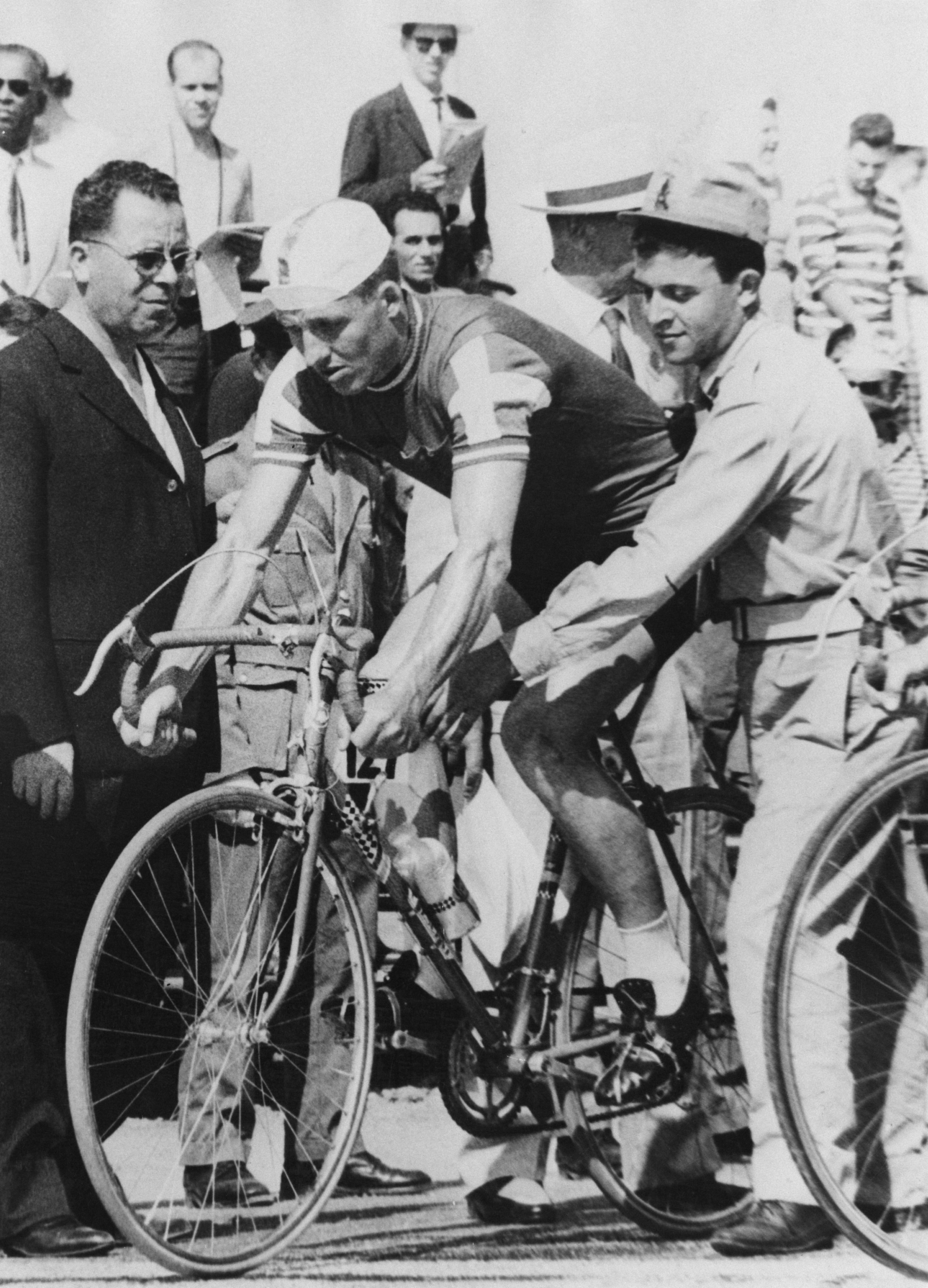
Danish cyclist Knud Enemark Jensen at the Rome Olympics, on August 26, 1960 | Source: Getty Images
The day of the Rome team time trial was extremely hot, with temperatures reaching 42°C (108°F). Both Knud and his teammate, Jorgen Jorgensen, struggled with the intense heat.
About 20 kilometers from the finish, Knud collapsed from heatstroke, hitting his head in the fall. He was quickly taken by military ambulance to Sant Eugenio Hospital, where he fell into a coma and died later that day.
The official cause of death was listed as a brain injury secondary to a skull fracture from the fall. However, controversy soon emerged when a trainer for the Danish team admitted to giving the riders Roniacol, an amphetamine-like substance.
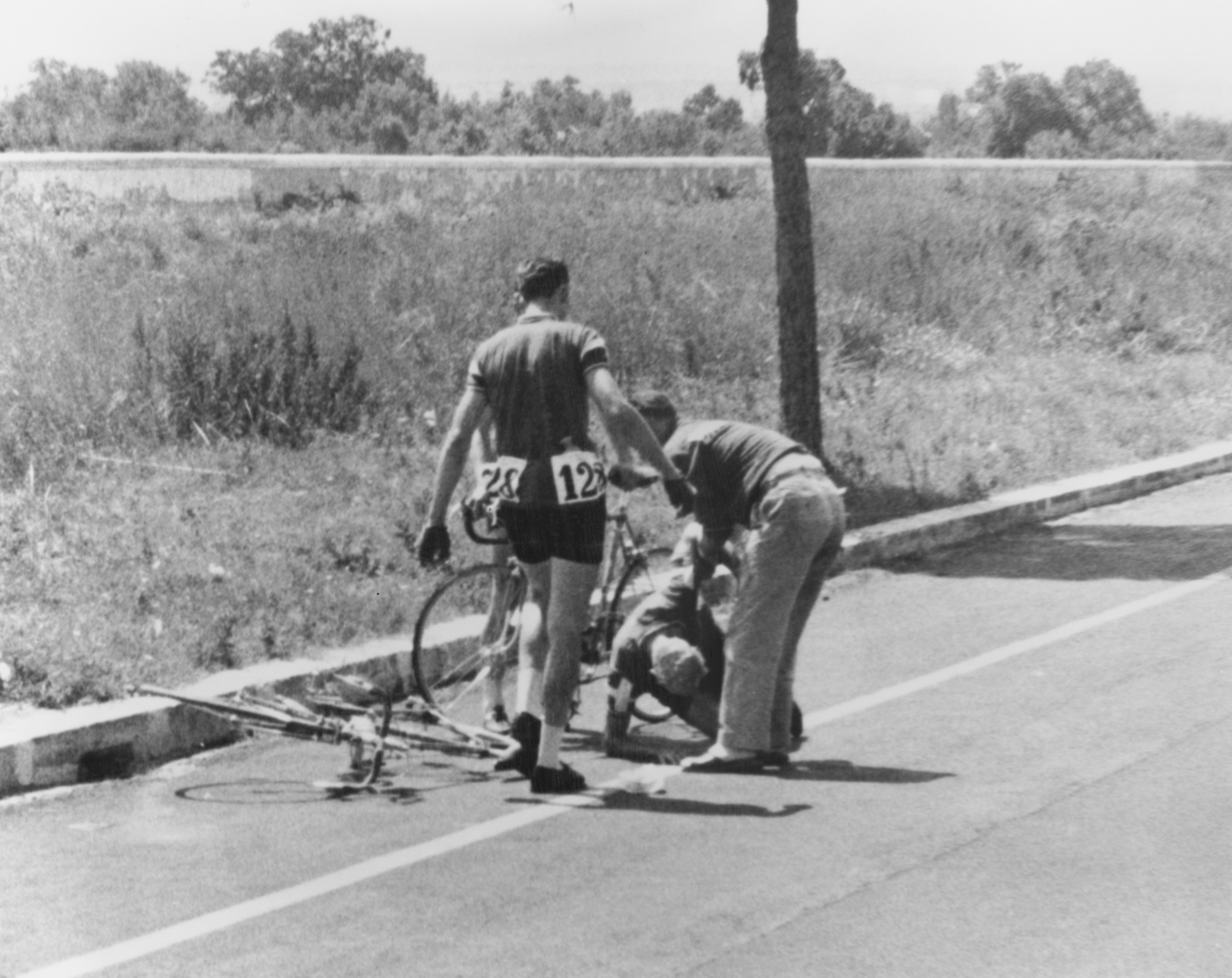
Danish cyclist Knud Enemark Jensen is attended by a Danish official after collapsing with heat stroke and suffering a fractured skull at the Rome Olympics, on August 26, 1960 | Source: Getty Images
Although this statement was later retracted, initial reports from the hospital indicated that Knud's toxicology screen contained multiple drugs, including amphetamines. This was subsequently denied by authorities and later reports from Danish cycling and Rome officials did not mention drugs as a possible cause, attributing the death solely to the skull fracture.
Knud's death had significant repercussions, leading the International Olympic Committee (IOC) to begin testing for drugs at the 1968 Olympic Games. The incident shed light on the dangers of doping and the extreme conditions athletes often endure in their pursuit of excellence.
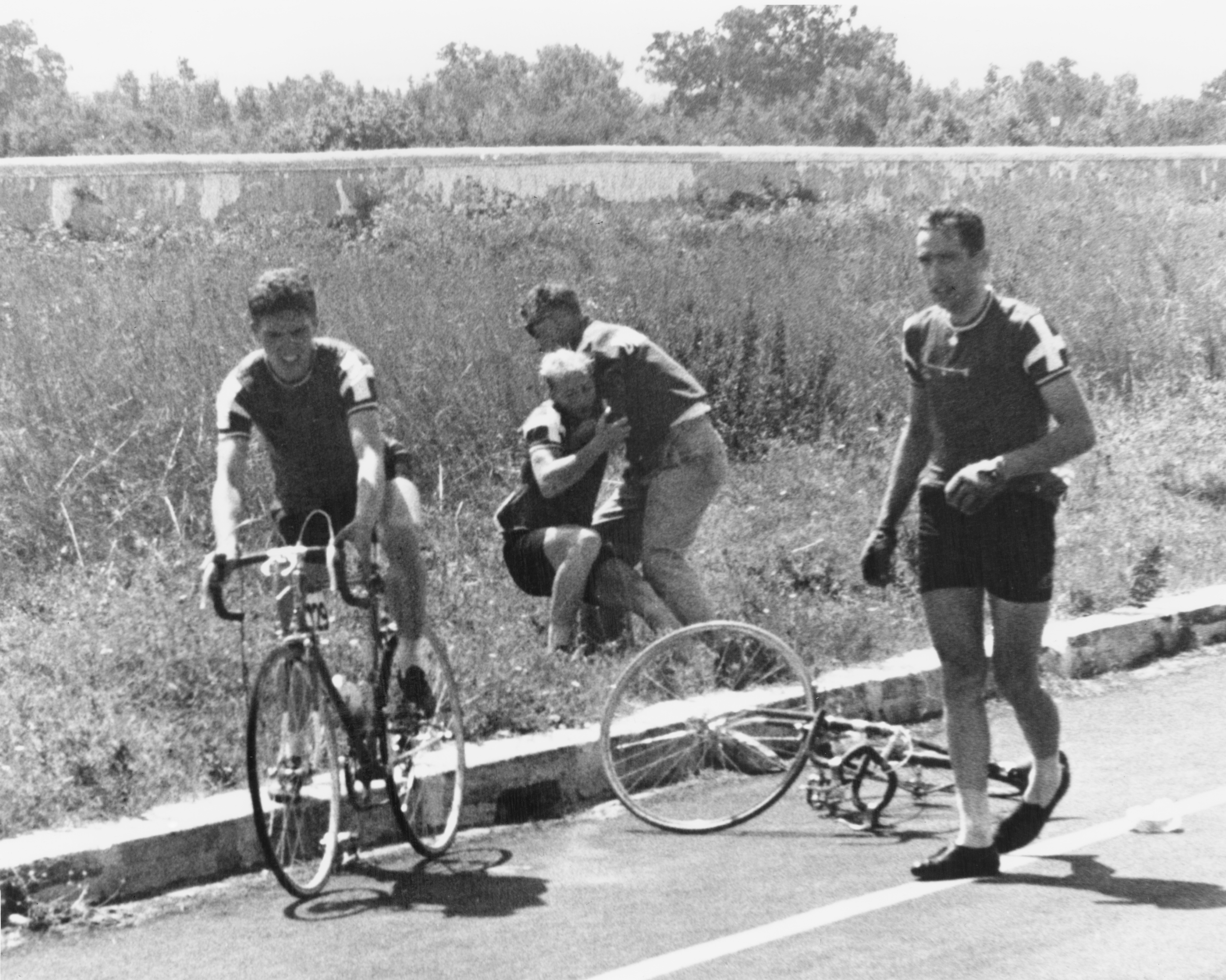
Danish cyclist Knud Enemark Jensen is carried, unconscious to the side of the road by a Danish official after collapsing with heat stroke and suffering a fractured skull at the Rome Olympics, on August 26, 1960 | Source: Getty Images
The Olympic Games, a stage for showcasing the pinnacle of human athletic achievement, have also been marked by profound tragedies. Each story emphasizes the resilience and determination of star athletes and their families, who continue to strive for greatness despite unimaginable hardships.
As we celebrate the triumphs of the Olympics, we also remember the lives lost and the lasting impact of these tragedies on the sporting world.
The information in this article is not intended or implied to be a substitute for professional medical advice, diagnosis or treatment. All content, including text, and images contained on news.AmoMama.com, or available through news.AmoMama.com is for general information purposes only. news.AmoMama.com does not take responsibility for any action taken as a result of reading this article. Before undertaking any course of treatment please consult with your healthcare provider.
